In a dental emergency, you need to act quickly. A few hours can mean the difference between saving a tooth and losing it. At this time of year, with so many holiday parties – and so many opportunities to crunch candies, nuts, and ice from your cocktail (or to show off your decades-old breakdancing moves), it’s important to know exactly what to do if you crack or chip a tooth late at night and need to find a dentist after hours.
Is it an Emergency?
First, you need to determine if your tooth problem is really an emergency or if it can wait for an appointment. In general, it’s an emergency if you are at risk of losing a tooth, if you can’t stop the bleeding, or if you are in severe pain.
Questions to Ask Yourself:
- Are you bleeding from your mouth?
- Are any of your teeth loose or cracked?
- Do you have severe pain?
- Is your mouth or facial area swollen?
- Do you have swelling in your gums?
If you answered yes to any of these questions, seek emergency care immediately.
What to do First
Call your dentist. All good dentists have an after-hours emergency phone number and should give you this information on your first visit. If you don’t have a dentist, search the internet for emergency dentist. Most emergency dental clinics accept walk-in patients. Finally, if you are unable to find a dentist, go to your nearest hospital emergency department.
If you have a dental emergency while travelling, contact your travel insurance provider for a list of approved practitioners, ask your hotel concierge, reach out to your home country embassy or contact the International Association for Medical Assistance to Travelers, a non-profit membership-based organization.
Your next step will depend on your symptoms:
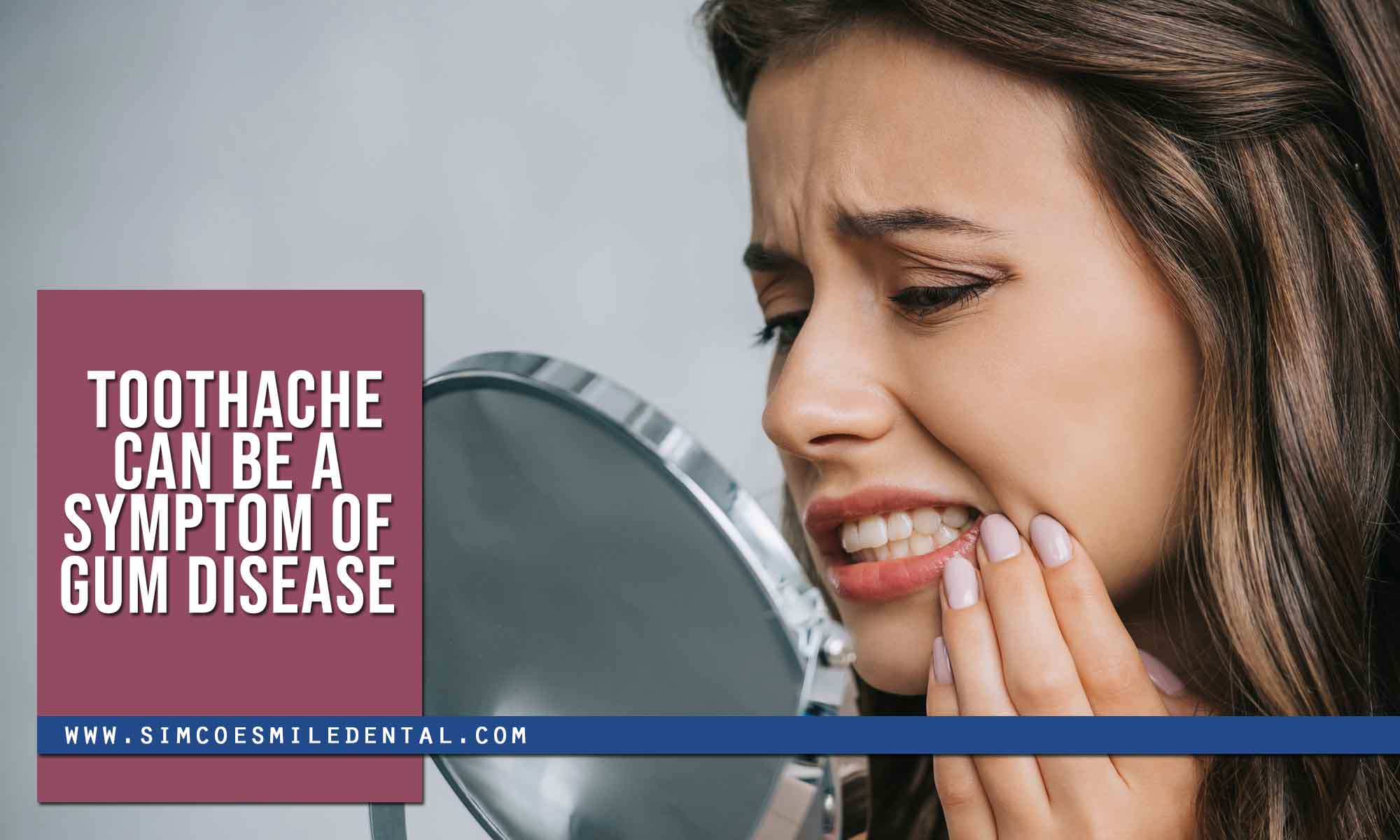
Toothache
After contacting your dentist, alleviate pain by taking an over-the-counter analgesic such as acetaminophen. Avoid aspirin and ibuprofen because they are anti-coagulants and could cause excess bleeding.
You can apply an ice pack to your face near the source of the pain for 20-minute intervals. Don’t apply heat — it can make the problem worse.
Chipped Tooth
A chipped tooth does not always constitute an emergency. You should still call your dentist immediately, but you will most likely be able to wait for an appointment within office hours. In the meantime, be careful not to cut your mouth on the sharp edge of your tooth.
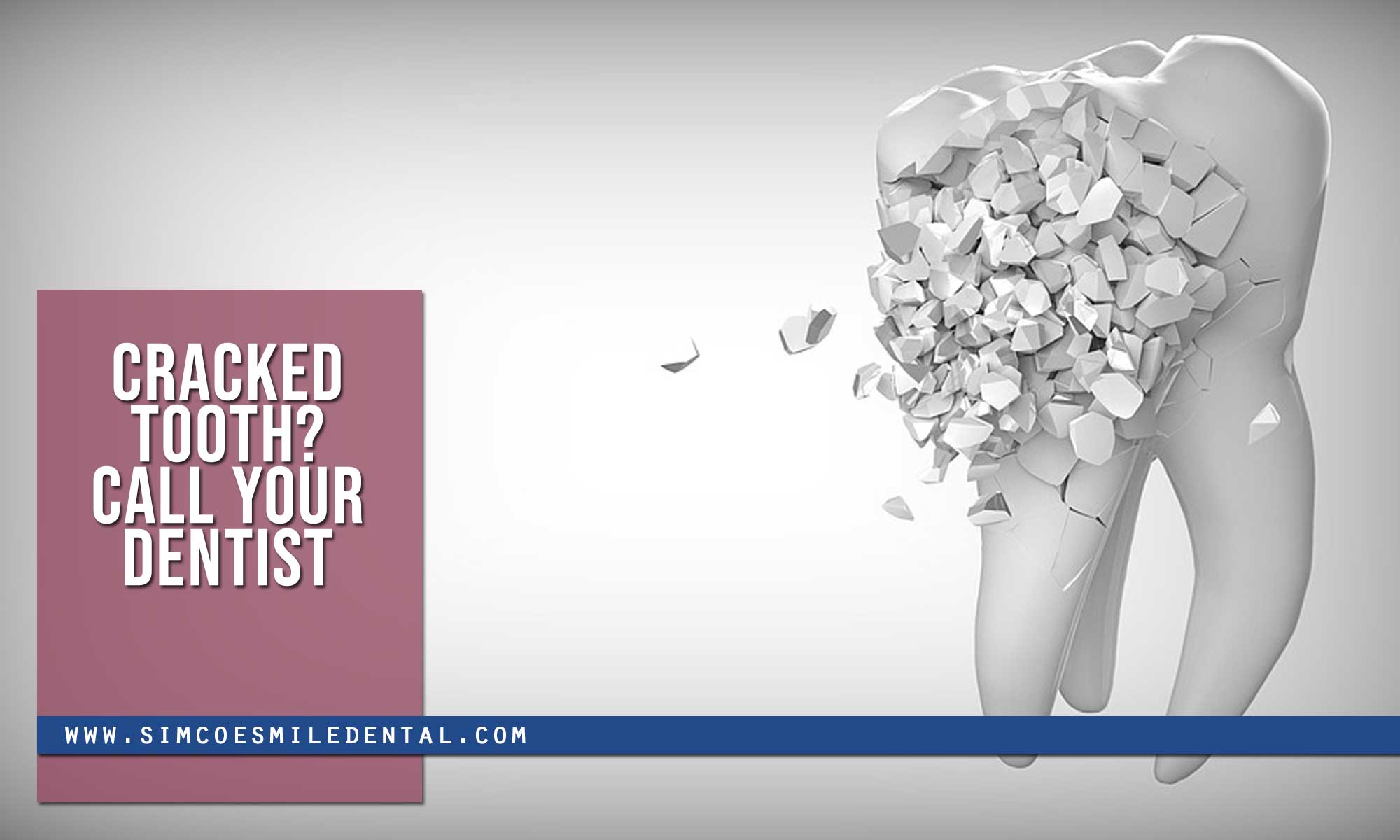
Cracked or Fractured Tooth
A cracked or fractured tooth is almost always a dental emergency.
- Call your dentist immediately.
- Rinse your mouth gently with warm salt water.
- Apply an ice pack to the area in 20-minute intervals to reduce swelling.
- Take acetaminophen for pain (not aspirin or ibuprofen).
At your appointment, your dentist will usually perform an X-ray to determine the extent of the fracture.
If the soft tissue inside your tooth is affected, a root canal might be necessary. This is a complex procedure where the dentist must channel to the root of a tooth to remove any infected tissue. The tooth is then filled and capped with a crown — a hollow, artificial tooth placed over the top of a damaged tooth.
If the fracture has not reached the inner part of your tooth, your dentist may only need to fit the tooth with a crown.
Loose Tooth
A loose or misaligned tooth is a dental emergency. If can be caused by a blow to the mouth or gum disease. Call your emergency dentist in Oshawa immediately. In the meantime:
- Gently push your tooth back into position and bite down to keep the tooth in place.
- Avoid eating on the affected side of your mouth.
- If you experience swelling, apply a cold compress.
- Take acetaminophen for pain.
Your dentist may apply a splint to secure the tooth to neighbouring teeth until a permanent procedure can be done.
Lost Filling, Crown or Temporary Crown
Depending on their material, fillings and crowns should last between 5-15 years. Ideally, your dentist will replace them before they come loose, but if they fall out themselves, it is not necessarily a dental emergency. However, you should still alert your dentist to this development as soon as possible. In the meantime, it is important to protect the vulnerable tooth right away.
- Remove the loose filling or crown and keep it to show your dentist. If you have swallowed it, don’t worry – it usually passes without incident.
- Rinse your mouth with warm salt water to cleanse.
- The Canadian Dental Association recommends covering the exposed tooth with a piece of softened, sugarless chewing gum. Dental wax (found at your dentist’s office or local pharmacy) can also provide protection until you can see a professional.
- If the crown is intact, you can secure it back onto the tooth temporarily with a dental adhesive. First, brush the crown and the tooth gently to remove any food debris.
- Take acetaminophen if you experience any pain.
- Avoid excessively hot, cold, sweet, hard or chewy foods until you see your dentist.
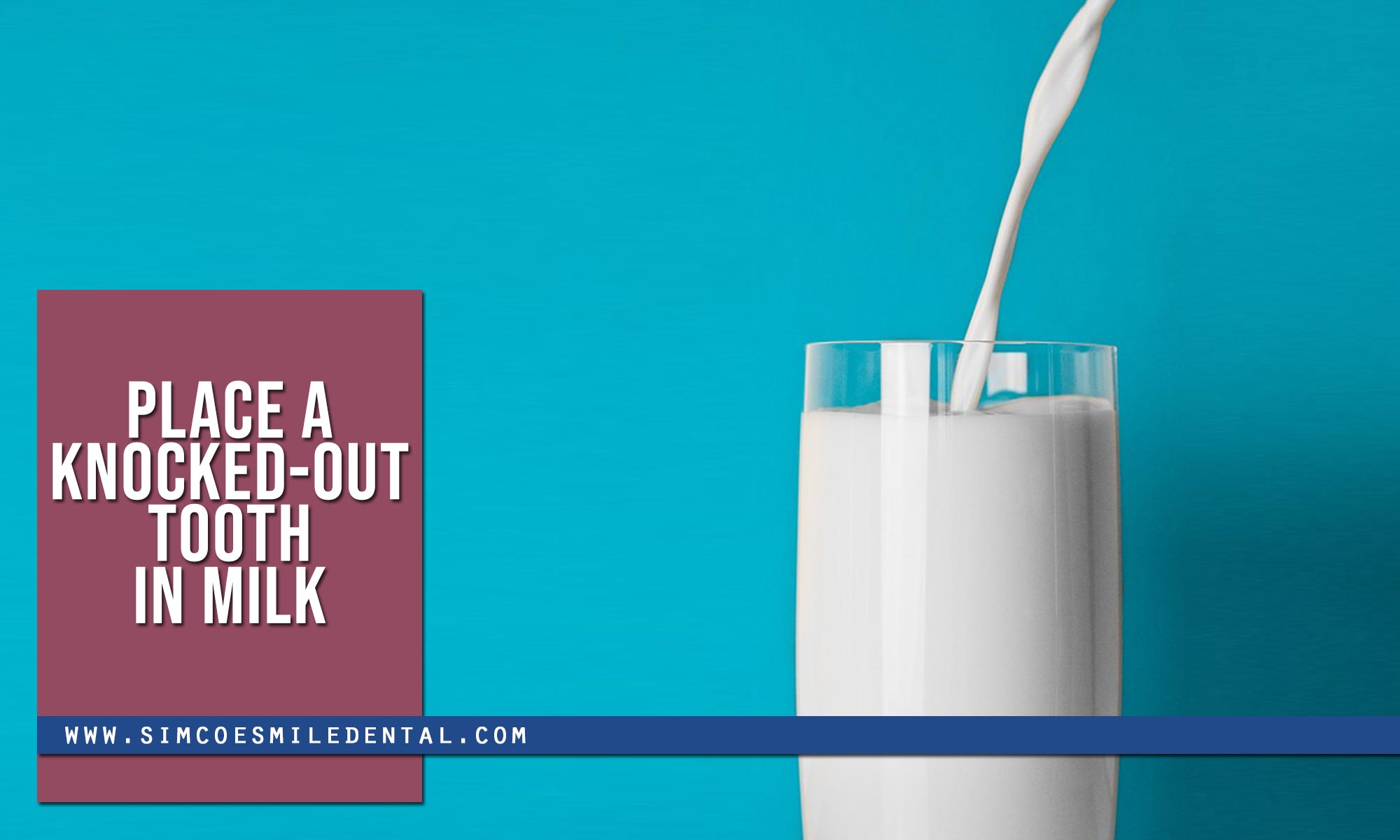
Knocked-Out Tooth
A knocked-out tooth is one of the most urgent dental emergencies. A tooth can be saved if it is treated within the hour. Chances diminish after that — though it is possible to save a tooth that’s been out for up to 2 hours.
- Call your dentist. If your dentist can’t be reached, find any available dental clinic that can treat you right away.
- If the tooth is still in your mouth, try to gently place it back in its socket and hold it there by biting down gently. Place a gauze pad between your teeth if possible.
- If the tooth has come out of your mouth and is dirty, rinse it very gently. Do not brush or scrub any of the tissue away.
- Hold the tooth only by the crown — don’t touch the root to avoid damage to the ligaments.
- Place the tooth in the socket and gently bite down.
- If it is too painful or you are unable to put the tooth in its socket, these are your options, in order of preference:
- Place the tooth in a container of milk.
- Keep the tooth between your cheek and gums to keep it moist.
- Place the tooth in a clean container.
- Take acetaminophen for any pain and use an ice pack for swelling.
- Immediately take the tooth to the nearest available emergency dental clinic.
If the dentist is unable to save your tooth, you will still have many options available including a dental bridge, dental implants, and partial dentures.
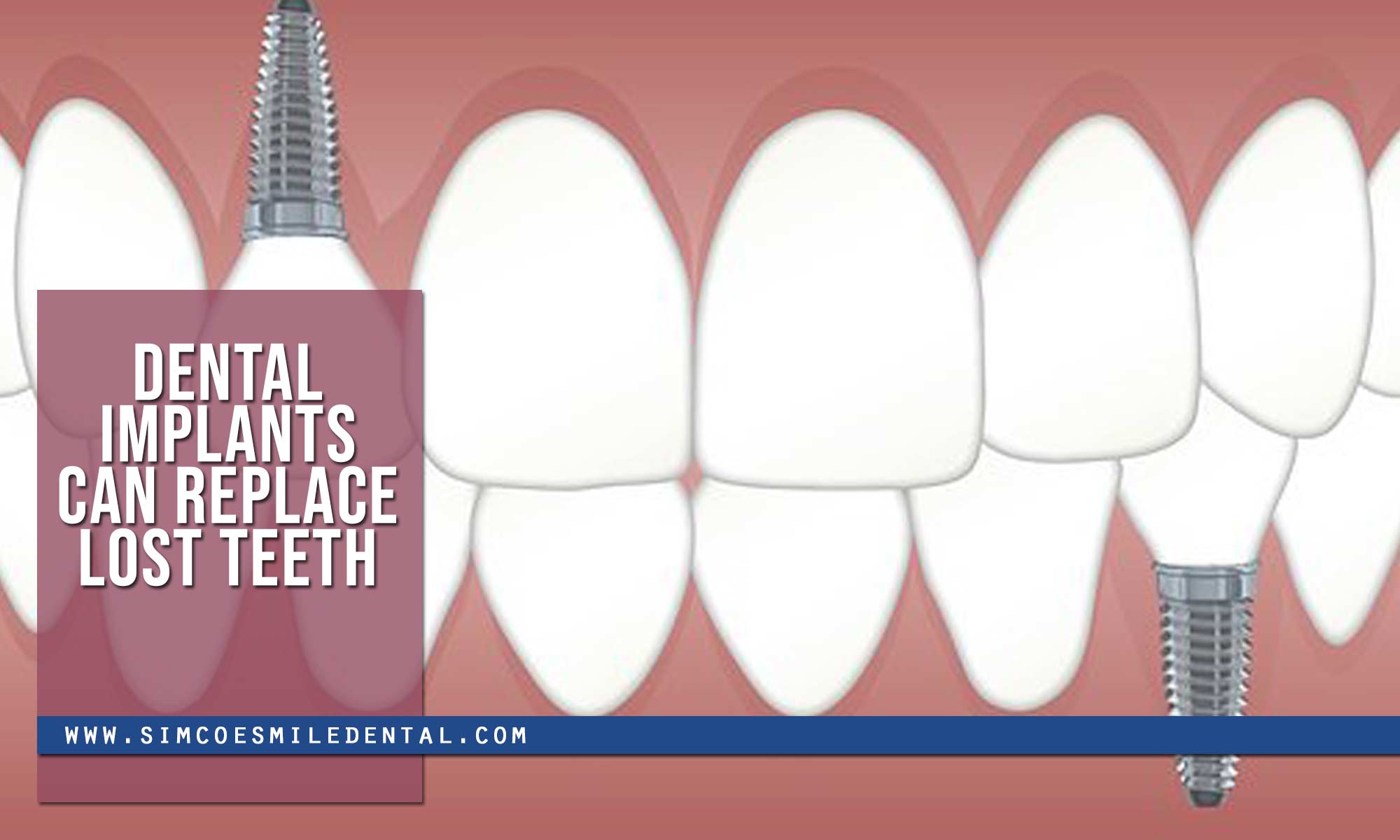
How to Prevent a Dental Emergency
Accidents happen, but there are a few things you can do to reduce your risk of experiencing a dental emergency.
- Don’t use your teeth to open items or unscrew caps.
- Don’t chew ice or popcorn kernels.
- Take care when eating hard candy and nuts.
- Wear a quality mouth guard when playing high-impact sports
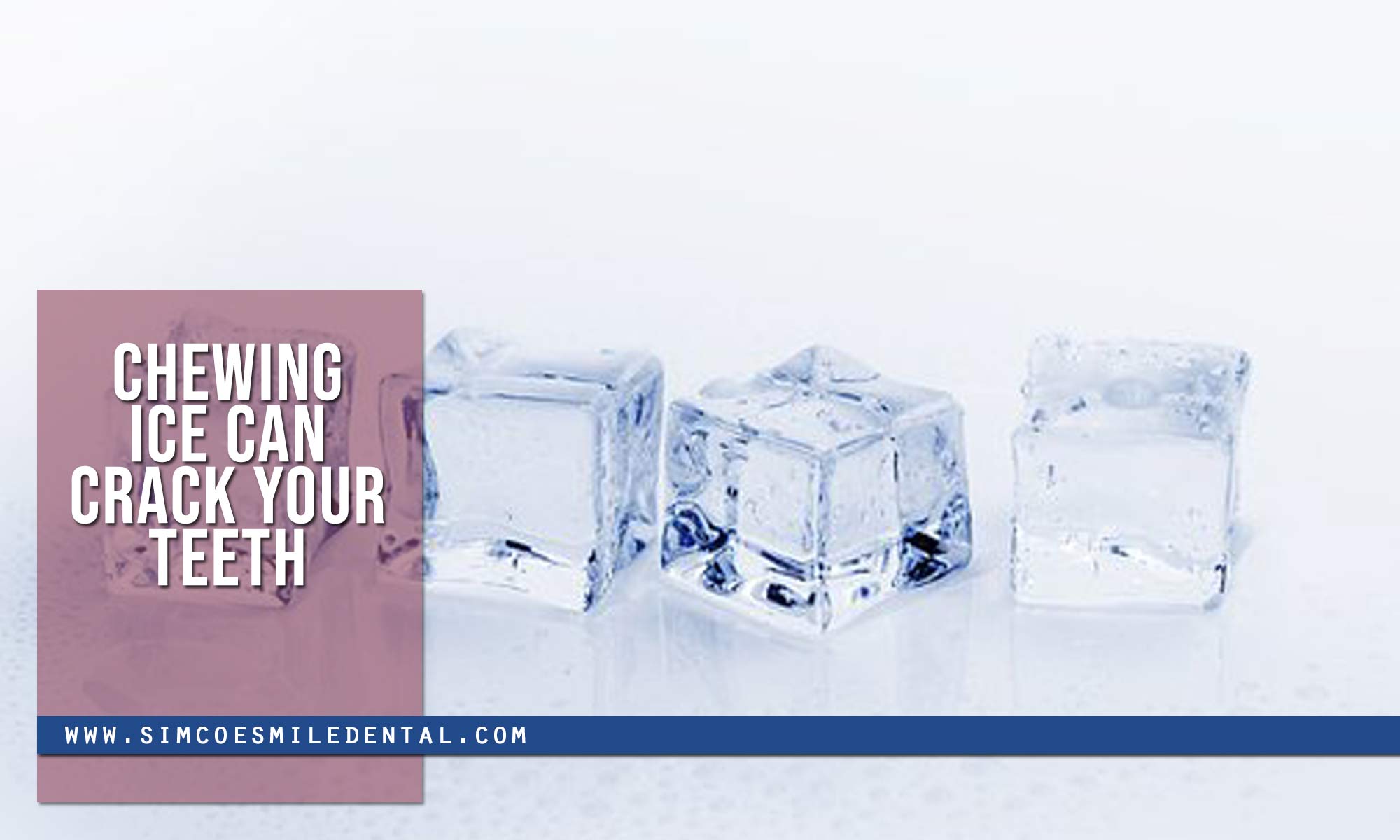
If you can’t fully prevent a damage to your teeth, you can be fully prepared in the event of one. Keep a dental emergency kit in your first aid cabinet. Here’s what it should include:
- Your dentist’s name and emergency after-hours number
- Gauze pads
- An instant cold pack
- Acetaminophen with dosage instructions
- A clean, sealable container
At Simcoe Smile Dental, we are emergency dental care experts. Call now if you have an “after hours accident” in Oshawa: (289) 312-1482. We offer dental implants, inlays, onlays and crowns, and also cosmetic dentistry.
